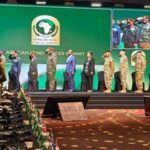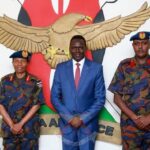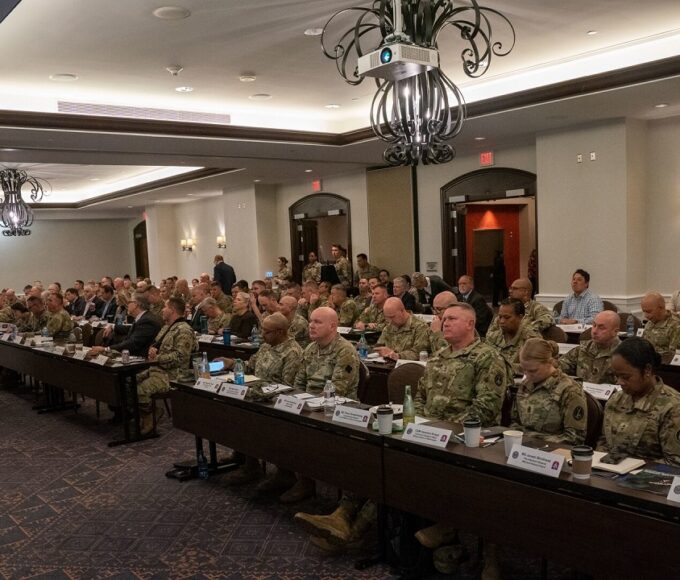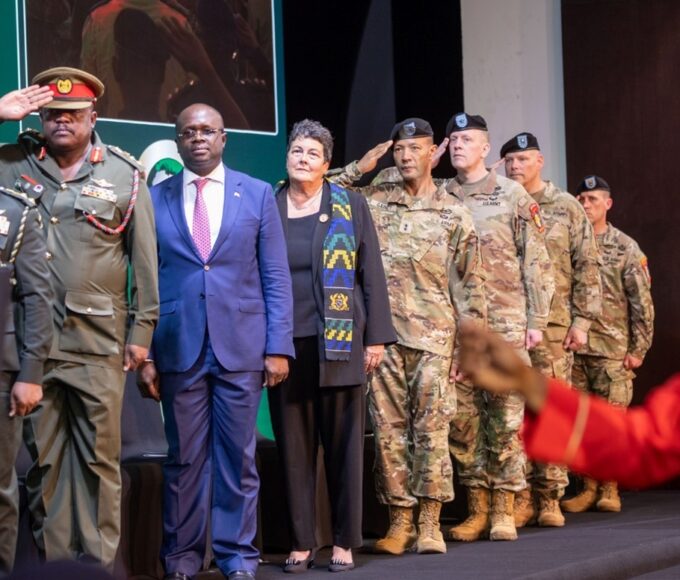African Security Think Tanks and Forums: Shaping the Policy Agenda Beyond the Barracks
The challenge now is sustainability. For these institutions to thrive, they need autonomy, access, and long-term investment—not only from donors, but from African governments committed to modernising defence governance.
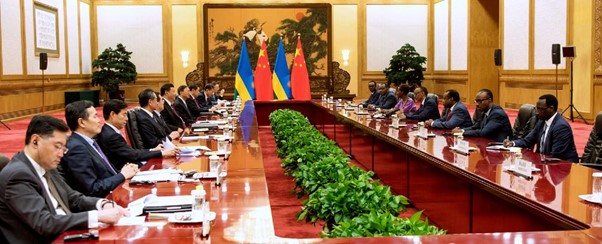
For decades, security policy across Africa was confined largely to military barracks and government ministries, with limited input from academia, civil society, or independent research institutions. That is changing—rapidly. A new generation of African security think tanks and policy forums is emerging as powerful forces in shaping strategy, reform, and doctrine across the continent. From drafting white papers to influencing peacekeeping mandates, these institutions are redefining who drives defence policy and how.
This article examines the rise of African security think tanks and forums, their role in shaping national and regional security agendas, and the implications of this shift for civil-military balance and defence innovation.
The Think Tank Surge: Why It Matters Now
Africa’s evolving security threats—ranging from cyber attacks and violent extremism to disinformation and border instability—demand more than kinetic responses. They require strategic foresight, policy innovation, and evidence-based decision-making. Increasingly, African governments are turning to homegrown think tanks to fill that gap.
Key drivers behind the rise of these institutions include:
- Demand for strategic doctrine beyond reactive militarism
- A push for transparency and accountability in defence budgeting
- The need for civilian expertise in multidomain security (cyber, maritime, space)
- International donor interest in inclusive, informed security frameworks
As a result, African think tanks are no longer just critics or observers—they are becoming architects of national defence strategy.
Leading African Defence Think Tanks and Forums
- Institute for Security Studies (ISS) – South Africa, Kenya, Senegal, Ethiopia
A pan-African research institution, ISS produces leading analysis on terrorism, organised crime, and peace operations. It regularly partners with AU and SADC missions and is instrumental in security sector reform dialogues. - Centre for Strategic Research and Studies (CSRS) – Nigeria
Attached to the National Defence College in Abuja, CSRS plays a unique role as both a military academic hub and a policy advisory body to the Nigerian Ministry of Defence. - Kofi Annan International Peacekeeping Training Centre (KAIPTC) – Ghana
While best known for its training programmes, KAIPTC also hosts major policy forums and conducts applied research on peace operations, maritime threats, and civil-military relations. - African Centre for the Study and Research on Terrorism (ACSRT) – Algeria
An AU-affiliated body, ACSRT supports member states through training, intelligence analysis, and counter-terrorism strategy design. - Fahamu – Pan-African Network on Citizenship, Democracy and Human Rights
Though not a traditional defence institution, Fahamu influences peacebuilding policy through a human security lens and publishes widely on civil-military relations.
How These Institutions Are Shaping Policy
- Bridging the Civil-Military Divide
Think tanks offer a neutral space for dialogue between armed forces, policymakers, and civilian actors—helping to demystify military decision-making and build trust.
- Drafting Doctrine and Legislation
Institutions like ISS and CSRS have been directly involved in shaping counter-terrorism laws, intelligence reform bills, and strategic defence reviews in multiple countries.
- Regional Security Architecture
Forums such as the Annual African Security Dialogue and East Africa Peace and Security Symposium contribute to regional coordination by generating shared policy frameworks and early warning models.
- Public Awareness and Media Engagement
Many think tanks now publish security briefs, host podcasts, and run public webinars—shaping citizen understanding and supporting democratic oversight of defence institutions.
Challenges Facing Africa’s Security Think Tanks
While their influence is growing, African defence think tanks still face serious hurdles:
- Funding volatility, especially for independent institutions not attached to government or foreign donors
- Limited access to classified or real-time military data, reducing analytical depth
- Political sensitivities, which can inhibit honest critique of national defence policy
- Talent retention, as top researchers are often poached by international agencies or governments
Moreover, many states lack a national strategy for incorporating think tank outputs into official policymaking processes.
Opportunities for Expansion and Impact
- Integration into National Security Councils
Formalising the role of think tanks in national strategy planning and crisis simulations. - Research Partnerships with Military Academies
Bridging theory and practice through joint case studies, war games, and scenario planning. - Pan-African Research Grants for Defence Innovation
AU and regional bodies can fund cross-border research on indigenous tech, logistics models, and hybrid threat responses. - Diaspora Engagement
Tapping into Africa’s academic diaspora to enrich local research efforts and link with global defence trends.
The Future: Beyond the Barracks, Into the Briefing Rooms
The age of cloistered military strategy in Africa is fading. In its place, a more collaborative, evidence-based, and inclusive approach is taking root. African security think tanks are not just filling knowledge gaps—they are influencing laws, reshaping training curricula, and informing battle plans.
The challenge now is sustainability. For these institutions to thrive, they need autonomy, access, and long-term investment—not only from donors, but from African governments committed to modernising defence governance.
Think Tank & Forum Snapshot (2025):
| Institution | Country | Area of Focus | Impact Highlight |
| ISS | South Africa | Terrorism, SSR, maritime | Consulted on Mozambique insurgency response |
| CSRS | Nigeria | Strategy & Doctrine | Influences Nigerian defence white papers |
| KAIPTC | Ghana | Peacekeeping, civil-military | Hosts AU civilian protection roundtables |
| ACSRT | Algeria | Counter-terrorism | Supports AU CT coordination centres |
| EAPSS | Kenya | Regional coordination | Builds cross-border early warning systems |
A New Agenda for African Security
By nurturing these institutions and respecting their intellectual independence, African states stand to benefit from a new generation of defence thinking—one that understands the complexities of 21st-century warfare and the need for holistic, African-owned solutions. The barracks will always be central to African security, but it is in briefing rooms, libraries, and symposium halls that the next great doctrines may be born.
Recent Posts
Categories
- Air & Aerospace17
- Border Security15
- Civil Security6
- Civil Wars4
- Crisis5
- Cyber Security8
- Defense24
- Diplomacy19
- Entrepreneurship1
- Events5
- Global Security Watch6
- Industry8
- Land & Army9
- Leadership & Training5
- Military Aviation7
- Military History27
- Military Speeches1
- More1
- Naval & Maritime9
- Policies1
- Resources2
- Security12
- Special Forces2
- Systems And Technology9
- Tech6
- Uncategorized6
- UNSC1
- Veterans7
- Women in Defence9
Related Articles
THE ROLE OF DEFENCE CONFERENCES IN GLOBAL PARTNERSHIPS
Defence conferences have emerged as vital platforms for fostering collaboration and understanding...
ByKing Richard Igimoh, Group Editor ALOOctober 9, 2025African Land Forces Summit: Forging Strategic Ground Power Across the Continent
Where ground forces remain the backbone of African defence, the African Land...
Byadmag_adminJuly 7, 2025Global Defence Shows and Africa’s Participation: A Soft Power Strategy?
As international defence expos grow in scale and influence—spanning the Gulf to...
Byadmag_adminJuly 7, 2025Recapping Africa’s Largest Military Exercises: Who Led, Who Learned, What Changed?
Military exercises are no longer mere drills; they are geopolitical statements, readiness...
Byadmag_adminJuly 7, 2025





